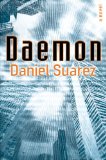 I am in Ireland now for a few days of vacation with my friend from college, James. I have been here once before, though it was a number of years ago and was for a somewhat short period of time (as if the four full-days I am here now after my trip to Lancaster is a long period!).
I am in Ireland now for a few days of vacation with my friend from college, James. I have been here once before, though it was a number of years ago and was for a somewhat short period of time (as if the four full-days I am here now after my trip to Lancaster is a long period!).
Whatever the case, I have planned for this trip by doing something I have never done when traveling before—planned to not plan for everything.
Let me attempt to clarify.
I believe I am a first-class travel packer, and have packed only and everything that I need for my trip (there is nothing in my bag I have not used, and nothing I really needed that I should have brought). While this accounts for the physical items, I am focusing now upon the non-physical—the thoughts and experiences that come along with and attend to seeing something new with someone who I have seen a lot with over the past 20 years.
“What do I want to see while here,” I was asked. What is usually a question that demands an extra 10 hours to be added to the day was instead replaced by something much simpler and perhaps even more complicated, “I want to see the things about Ireland that make people say it is such a beautiful place.” If only this can be easily planned for!
I want to see nature, landscapes, colors, and sites that I have only been able to see without feeling online. Those sites that I can re-experience with my own photos, but which may be meaningless by seeing them in those of other people.
I don’t quite know what these things may be before I see them . . .
What do I want to see? Seeing is not quite the right word—I want to experience things that I cannot see online, on video, through pictures, the phone. I want to experience things that technology can not reproduce; only reminding me of later.
Ever see a picture or hear some music or have a conversation and get transported through time and space to that or some other experience or history or memory? Take a look at the photos I uploaded to Flickr and you will see the physical memory of yesterday. Looking at them again now, I remember the feel of the wind, my fear of the heights, the rich colors, the peaceful brooks, the memory of great movies and even greater expansion and promise that have washed across these hills over the millennia.
That is the best I can do to share what I did yesterday. Know the pictures (while clear and colorful, if I do say so) hold only a glimpse of how rich the experience really was, and they all took place because I did not create a checklist of things I wanted to see and do while here. Let’s see what happens.
That is what I wanted to see in Ireland.

